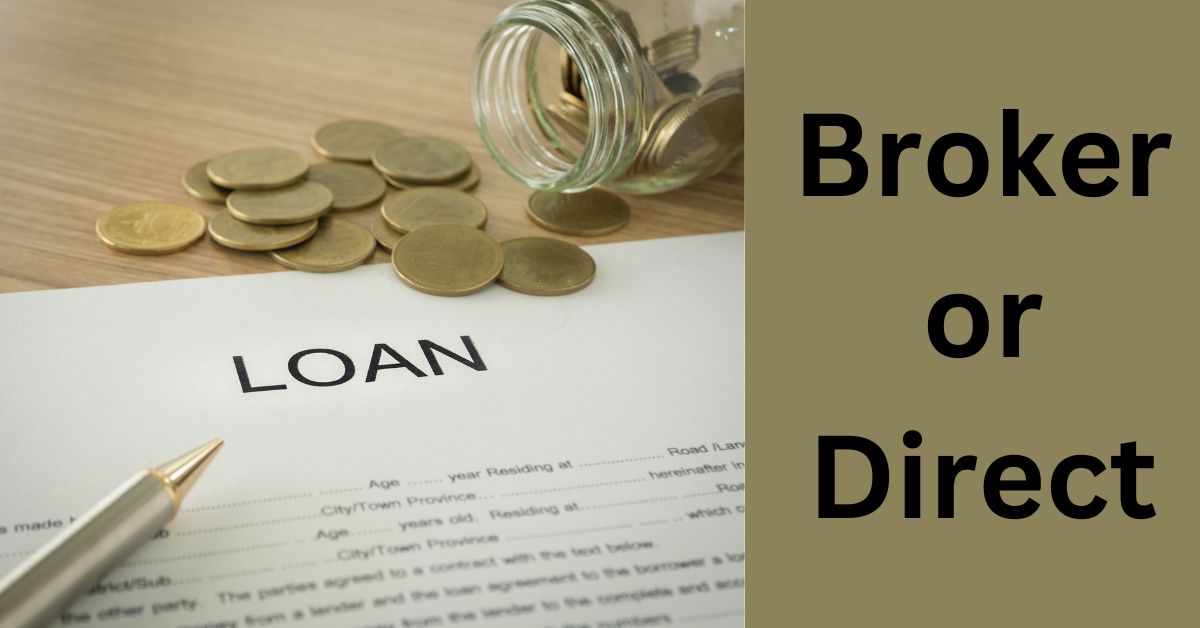Table of Contents
Note: If you came to this post on the loan broker or direct lender question through a random search, please click on this parent page and our home page for more context.
Mortgage Loan Takeaway
When you look for mortgage loan providers for your remodel project, you will generally go to mortgage loan brokers or direct lenders. What’s the difference between them, and which is better?
The key takeaway: Before you decide on the mortgage loan provider for your remodel, talk to both brokers and direct lenders. There are pros and cons to working with each. And it is only by talking to both that you will learn which is best for you. So let’s discuss the differences.
Loan or Mortgage
This is just a quick note to avoid any confusion in terminology discussing mortgage loan providers.
A home loan and a mortgage are basically one and the same. Any confusion arises out of the technical difference between a home loan being secured by a Deed of Trust (as it is in, say California) or by a Mortgage (as it is in, say, New York). In both cases, the home is collateral for the loan. So the effect is essentially the same.
In the same way, there is no practical difference between a direct lender and a mortgage lender/bank.
But, for consistency here, we will stick to the terms “loan broker” and “direct lender.”
And note that there are some remodel financing options that neither will provide.
- Related post: Remodel Financing Options
Loan Broker or Direct Lender – The Differences
Direct Lenders
A direct lender uses its own money to fund loans on real estate.
The direct lender employs its own loan officers, loan processors, underwriters, and funders throughout the process of originating a loan.
Once the loan has been originated and secured on the property, the direct lender may retain and service the loan in its own portfolio. Or it may sell the loan to investors on the secondary market.
Types of Loans
Those loans that meet specific criteria may be insured, guaranteed, or purchased by government-sponsored agencies. These include FHA (Federal Housing Administration), VA (Department of Veteran Affairs), Freddie Mac (Federal Home Loan Mortgage Corporation), and USDA (United States Department of Agriculture).
Loans that don’t meet those criteria and have no government backing are called “conventional” loans.
Be sure to ask what types of loans the broker or direct lender handles and what they do not, when it comes to financing a remodel.
Examples of Direct lenders
You will recognize some direct lenders by their familiar names like Quicken Loans, Bank of America, Wells Fargo, JPMorgan Chase, LoanDepot, Rocket Mortgage, US Bank, and your local credit unions. There are others but the familiar names in your town are the ones to go to initially. They are all competing with each other for your business.
Online Lenders
Some of these direct lenders have an online presence only. So, if you prefer face-to-face interactions, you will probably feel more comfortable talking in person with a loan officer in a direct lender’s brick-and-mortar branch near you.
Loan Brokers
Loan brokers are middlemen and represent wholesale lenders. They are licensed by the state. And license requirements vary from state to state.
Broker commissions are paid either by the wholesale lender or by the borrower. But not both. And this will depend on the loan program in question.
The wholesale lender will send out their loan program details and rate sheets to selected loan brokers all over the country. And an individual loan broker may represent a variety of wholesale lenders.
This also means that a loan broker can offer a wider selection of loan programs than the direct lender.
Pros and Cons of Loan Brokers vs Direct Lenders
The Advantages of Loan Brokers
- Loan brokers are in a position to match your specific loan needs across a large variety of loan offerings from a multitude of loan wholesalers.
- If you don’t have a lot of time to shop for your loan, a mortgage broker can be your better choice.
- If you have issues, such as a relatively low credit score or student loan debt, the loan broker may be able to find a loan program that will work for you, while a direct lender may not.
- Loan brokers are in control of the margins they make (if their fee is from the borrower) and so they may be able to be more flexible on price than a direct lender.
- You can see the loan broker’s compensation disclosed in the loan documentation.
The Disadvantages of Loan Brokers
- Unlike the direct lender, the loan broker has no real control over the loan process. This is because they do not actually work for the lender and have no chain of command to refer to. This means that if there are delays or changes in loan details that affect you, there is not much the loan broker can do about it. The loan broker is not the decision-maker.
- Since some wholesale lenders pay better commissions than others, there is a potential for a conflict of interest in a loan program a mortgage broker may offer you.
- Loans obtained through loan brokers take longer to put in place for much the same reason as a lack of control of the process. This is a potential problem if you are pressed for time.
- Brokered loans are usually more expensive than loans from a direct lender. This is often because many programs are tailored to applicants with less than stellar credit.
The Advantages of Direct Lenders
- With a direct lender, the entire loan process is handled in-house, from loan application to funding and closing. This is because the loan officer you are working with at the local branch of the direct lender, say, Wells Fargo is an employee working in direct touch with people in the same organization up and down the chain of authority. So there is much greater control over the process. And if problems arise they are much easier to resolve than with a loan broker.
- Loan pricing is likely lower than with a loan broker.
- You may already have a banking relationship with the direct lender and this can be important to your application process.
- Unlike with a mortgage broker, there is no potential conflict of interest in the loan programs a direct lender may offer you.
The Disadvantages of Direct Lenders
- Direct lenders do not have the wide variety of loan products that a loan broker can offer.
- Unlike brokers, direct lenders don’t have to disclose what they make on your loan. So, you may pay more than you need to, if you don’t shop aggressively among direct lenders.
- Direct lenders usually have fewer loan products to offer you. This means that they may find it difficult to cater to your own particular circumstances.
- The loan officer you deal with in a direct lender may well have less depth of knowledge and experience than a loan broker.
- A direct lender tends to be very conservative in its approach to lending. So your application may be rejected even though you are actually a good loan prospect.
- The loan officer in a direct lender is probably a salaried employee with less motivation to get to “Yes” than a loan broker who works on commission only.
- Direct lenders do not have to disclose their margin to you.
What Should You Do?
Talk to both direct lenders and mortgage brokers.
You owe it to yourself to educate yourself on “what’s out there?” So you should sit down with both a mortgage broker and a direct lender. Try to make it two of each, so that you will have plenty of comparisons to make.
Get loan quotations from all of them. And don’t hold back from asking questions.
Pro tip: Once you have comparisons in hand, go back to each of your contacts and ask “Well, what about what this person told me.” Do not be afraid to make them earn your business!
Choosing a Direct Lender
In choosing a direct lender, the best place to start is probably where you already have a retail banking relationship and where you can meet a loan officer face-to-face in a brick-and-mortar location. You are already a customer and this matters to the loan officer.
Choosing a Loan Broker
In choosing a loan broker, the realtor you worked with will likely have a recommendation or a relationship with a mortgage broker. And certainly, talk to your friends and neighbors. A good online source for mortgage brokers is Find a Mortgage Broker.
Get a face-to-face meeting with the mortgage broker. And always ask for references and check their online reputation.
How it All May Play Out
The landscape of loan providers and their offerings is constantly changing. And both direct and wholesale lenders are getting more creative in the loan programs they can make available. So it really behooves you to dig deep as to what is out there.
However, if you have a high credit score, strong income, and some assets, you will likely find the most success with a direct lender. And it will be faster too.
If you are “credit challenged,” you will likely have a better chance at a successful loan outcome at a loan broker, even if you end up paying more for the loan. After all, a loan that is a little more expensive is better than no loan at all.
- Related post: Working with Remodeling Professionals





Leave a Reply